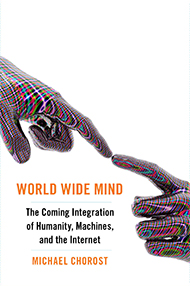My latest article, Living in Stereo, has just been published by The Journal of Life Sciences. This story is about my getting a second cochlear implant, or “going bilateral,” as we say. Careful readers of this blog will notice I’ve used (and heavily revised) some material from postings I wrote back back in January and February — but there’s plenty of new material, too. This piece basically sums up my experiences getting the implant and hearing with it during the first few weeks after activation.
This is my sixth publication in 2008. I really am cranking them out, aren’t I? It’s going to be a while before my next article, though, because in the next few weeks I’ll be traveling to MIT, Gallaudet, Key Biscayne (near Miami), and Northwestern (near Chicago). I’ve spent the last few months pounding away at the keyboard, so it’ll be good to get out and stretch my legs.

Nice article.
I’ve known you to be able to listen to the radio and communicate on the phone. But I’m curious. Do you use lip reading often, occasionally, or rarely?
I haven’t had a chance to read the latest piece; hit me up when you’re in DC. Dinner we must.
Steve, you’d be surprised how often I get asked that. I use it to supplement what I hear – as a way of resolving ambiguous phonemes. But I suspect that *everyone* does that.
Just so you know, lipreading is a very poor means of communication. Try turning off the volume on your TV and see how far you get.
Still, when I was totally deaf for three months back in 2001, I was surprised how well I did with lipreading. I was able to have reasonably coherent conversations with people. But I couldn’t have done it without the trickle of sound I had from my barely functioning right ear. Also, I could only communicate with people one-on-one. Group conversations were simply impossible.
Lipreading helps, as does facial expression and context. But it’s strictly an adjunct. Most of the information I get comes from actual hearing.
Michael,
Does this mean, then, that there is no or little differnce in your comprehsension of a telephone conversation as compared to a face to face chat?
Thanks,
sam
Sam, it’s always easier to talk with someone in person than on the phone. But as long as a person on the phone is speaking clearly and the connection is good, I can understand them without difficulty.